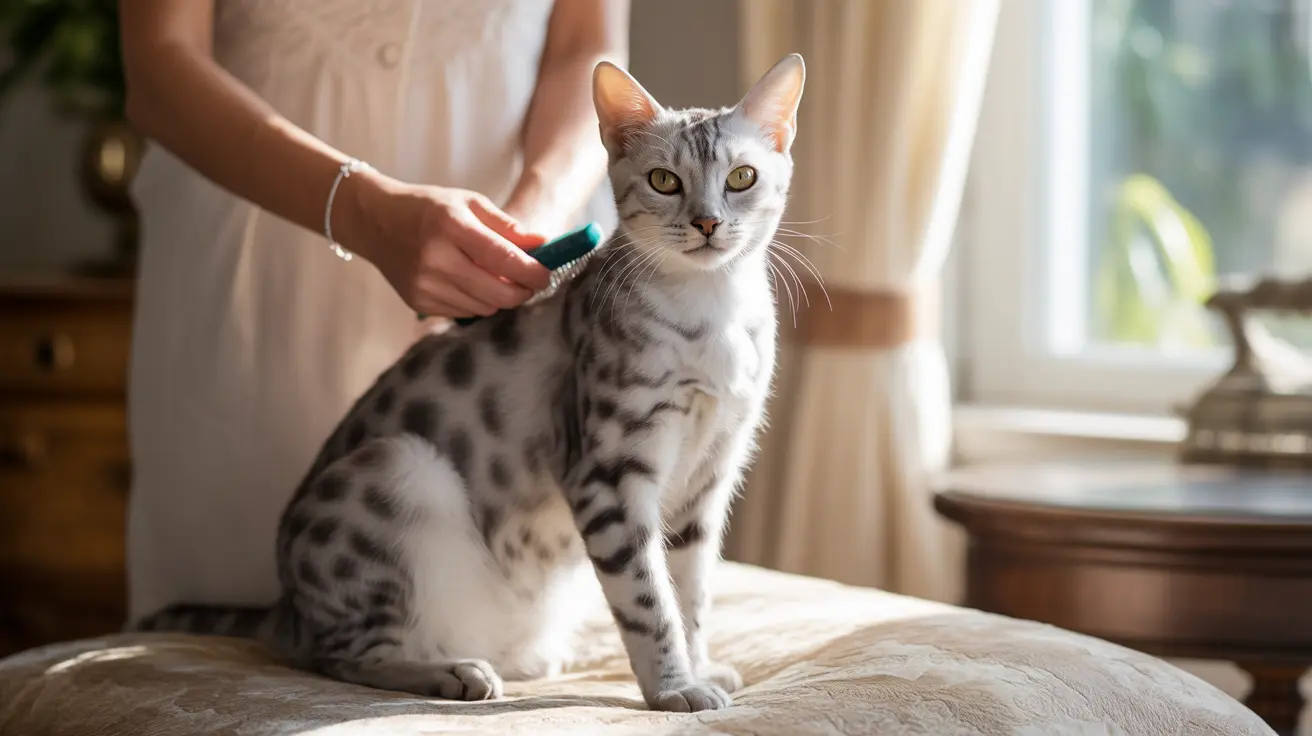A healthy, lustrous coat is more than just a sign of beauty in our pets - it's a vital indicator of their overall health and well-being. Understanding and maintaining proper pet coat health is crucial for every pet owner, as it directly impacts your furry friend's comfort, protection, and quality of life.
In this comprehensive guide, we'll explore everything you need to know about maintaining optimal coat health for your pet, from nutrition and grooming practices to identifying potential health issues and implementing seasonal care strategies.
The Foundation of Healthy Pet Coats
A healthy coat starts from within, primarily through proper nutrition and hydration. Essential nutrients like omega-3 and omega-6 fatty acids, high-quality proteins, and specific vitamins play crucial roles in maintaining coat health. Research shows that pets receiving adequate nutrition typically display shinier, healthier coats and experience fewer skin issues.
Essential Nutrition for Optimal Coat Health
The right diet is fundamental to maintaining a healthy coat. Quality commercial pet foods generally provide the necessary nutrients, but some pets may benefit from additional supplementation. Omega-3 fatty acids, found in fish oil, can significantly improve coat shine and reduce inflammation.
Studies indicate that pets receiving diets rich in essential fatty acids show marked improvements in coat quality within 4-6 weeks. Consider incorporating supplements like salmon oil or coconut oil, but always consult your veterinarian before making dietary changes.
Professional Grooming and Regular Maintenance
Regular grooming is essential for maintaining optimal coat health. The frequency depends on your pet's breed and coat type, but most pets benefit from brushing every 3-4 days. This routine removes loose fur, prevents matting, and distributes natural oils throughout the coat.
Professional grooming services can provide deeper cleaning and specialized treatments when needed, especially for breeds with more demanding coat care requirements.
Identifying and Addressing Common Coat Issues
Watch for signs of coat problems such as excessive shedding, dullness, or dry, flaky skin. These symptoms could indicate various issues, from simple nutritional deficiencies to more serious health conditions. Early detection and intervention are crucial for maintaining optimal coat health.
Seasonal Considerations for Coat Care
Different seasons bring different challenges for pet coat health. During winter, pets may need additional moisturizing treatments to combat dry air. Summer requires extra attention to prevent matting from increased outdoor activity and protection from sun damage.
Spring and fall typically bring increased shedding, necessitating more frequent grooming sessions to manage loose fur and prevent coat problems.
Frequently Asked Questions
How does proper nutrition affect my pet's coat health and shine?
Proper nutrition directly impacts coat health through essential nutrients like omega-3 fatty acids, proteins, and vitamins. A balanced diet ensures your pet's coat remains shiny, strong, and resistant to damage. Deficiencies in these nutrients can lead to dull, brittle fur and skin problems.
What are the best grooming practices to maintain a healthy pet coat?
Regular brushing (every 3-4 days for most pets), appropriate bathing schedules (typically monthly), and using proper grooming tools for your pet's specific coat type are essential. Avoid over-bathing, which can strip natural oils, and maintain a consistent grooming routine.
Which nutrients and supplements help improve dry or dull pet fur?
Omega-3 and omega-6 fatty acids, vitamin E, zinc, and high-quality proteins are crucial for improving coat condition. Supplements like fish oil, flaxseed oil, and biotin can help enhance coat health when added to a balanced diet.
How can I identify if my pet's coat problems indicate underlying health issues?
Watch for excessive shedding, bald patches, dull or brittle fur, persistent itching, or changes in skin condition. These symptoms could indicate allergies, hormonal imbalances, or other health issues requiring veterinary attention.
What seasonal care tips can keep my pet's coat healthy year-round?
Adjust grooming frequency based on seasonal shedding patterns, provide extra protection during extreme weather conditions, maintain regular flea and tick prevention, and consider using moisturizing products during dry seasons. Consistent grooming and monitoring are essential throughout the year.
Conclusion
Maintaining optimal pet coat health requires a comprehensive approach combining proper nutrition, regular grooming, and attentive care. By following these guidelines and staying vigilant about your pet's coat condition, you can ensure your furry friend maintains a healthy, comfortable, and beautiful coat throughout their life. Remember to consult with your veterinarian for personalized advice and whenever you notice significant changes in your pet's coat condition.






